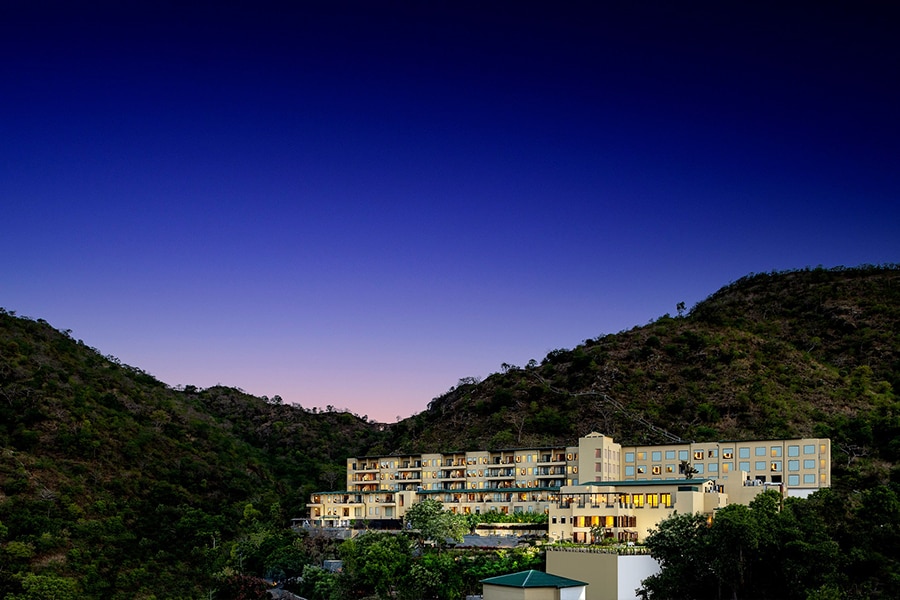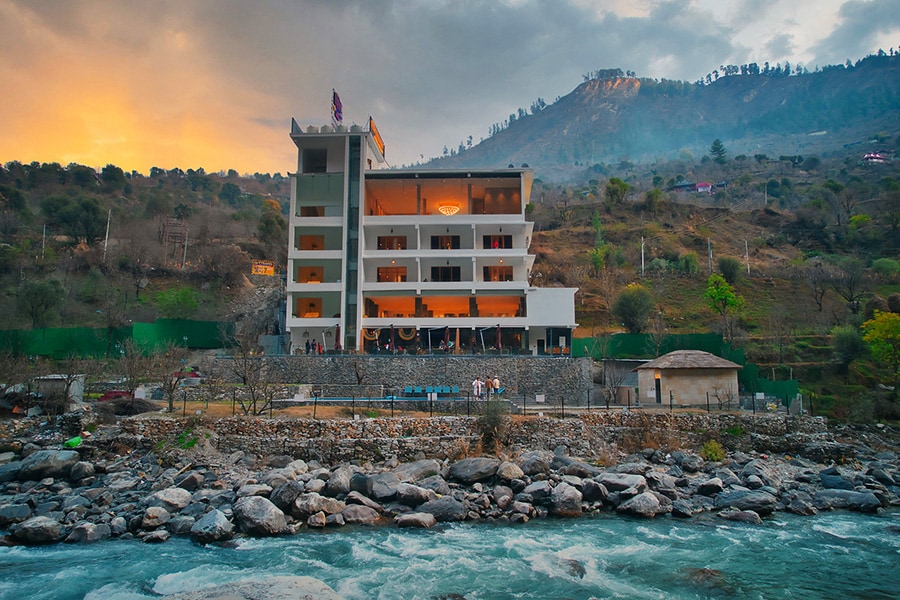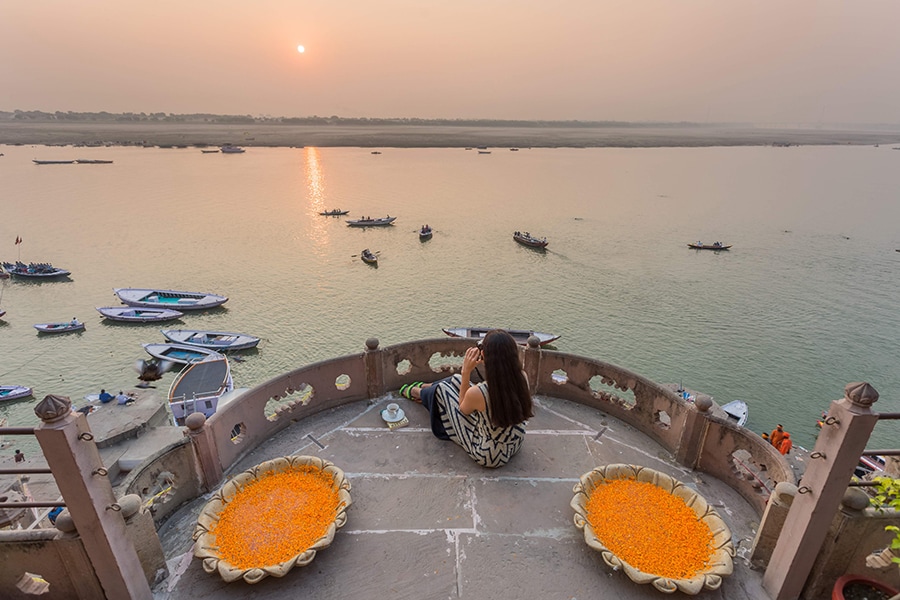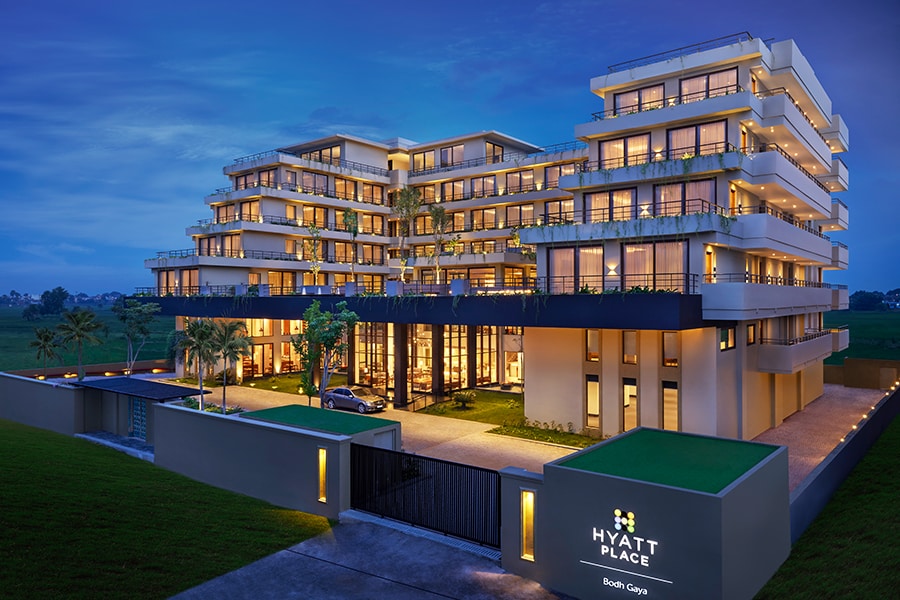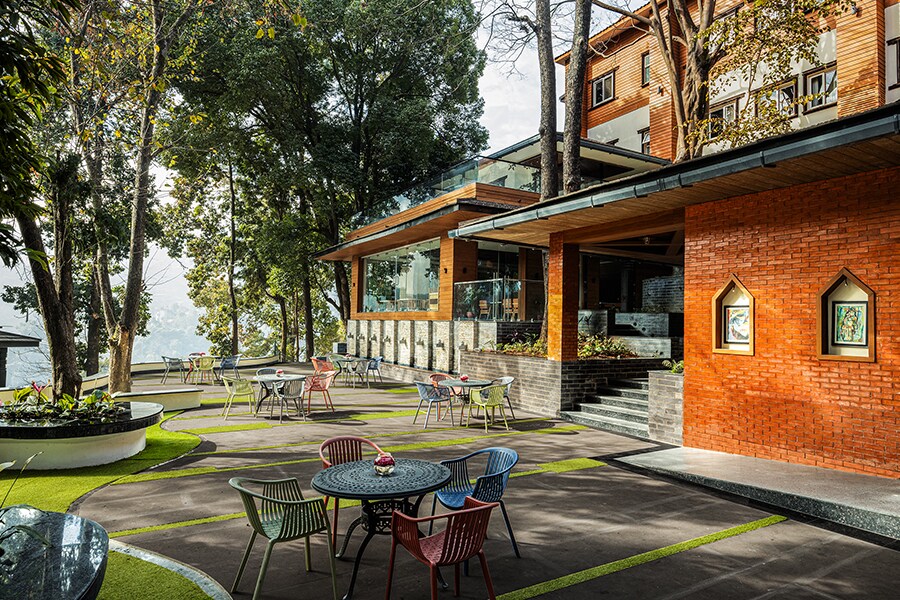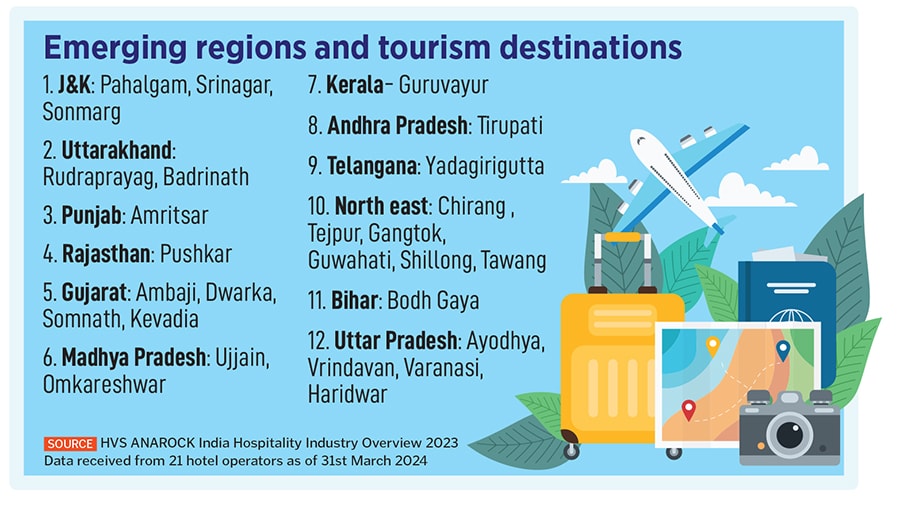With the strong revival of weddings and high-profile events such as the G20 summit and the ICC Men’s World Cup, 2023 proved to be exceptional for hoteliers. The year also marked a record number of brand signings. (See brand signings).
“The growth was not just quantitative but strategic, with a keen focus on expanding into smaller cities and underserved markets," states the HVS ANAROCK India hospitality industry overview 2023, released in April 2024. It states that tier-3 and tier-4 cities, which offer more attractive investment opportunities with lower entry barriers and operational costs accounted for 52 percent of the total signings by property in 2023.
Among the brands that took the leap is ITC Hotels.
In April, it added a property in Solan, Himachal Pradesh (HP), under its brand Storii—a collection of handpicked boutique properties. It consists of properties in the premium segment present at both expected and unexpected destinations. The hospitality chain also plans to add a Storii property in Naina Tikkar in HP’s Sirmaur district.
Among the Indian destinations that have shown growth in tourism, Kashmir and parts of Northeast have stood out and shown potential for development due to increasing footfalls and a scarcity of branded accommodations. Currently, Kashmir has 100 branded keys or rooms and is on the brink of expansion with nearly 500 keys in the pipeline, the HVS Anarock India report says.
In May, Marriott Hotel announced an opening in Katra, a spiritual city in Jammu and Kashmir (J&K) known for the Vaishnodevi shrine and Trikuta hills. The property offers 100 guest rooms, suites, and cottages along with other facilities such as a spa and local cuisine.
The Radisson Hotel Group also launched a new property in Srinagar, J&K. The group has its eyes set on tier-2 and tier-3 cities to capitalise on the rising domestic and religious tourism sectors. They have signed properties in Raipur (Chattisgarh), Sonipat (Haryana), and Vrindavan (Uttar Pradesh, UP), and have also expanded into destinations such as Gopalpur in Odisha, Kumbhalgarh in Rajasthan, and Karjat in Maharashtra.
“While established tourist destinations will always have their charm, travelers are increasingly seeking unique experiences beyond traditional tourist paths," says Nikhil Sharma, managing director and area senior vice president of South Asia, Radisson Hotel Group. "We are strategically expanding into offbeat locales and spiritual hubs such as Ayodhya allowing travelers to venture beyond the usual tourist spots," he adds.
In 2023, Radisson signed 2,086 keys, a 100 percent increase compared to 2022. Looking ahead, it aims to open 30 hotels annually, with a strategic emphasis on tier-2 and tier-3 cities, informs Sharma.
![]() Radisson Blu, Kumbhalgarh, Rajasthan
Radisson Blu, Kumbhalgarh, Rajasthan
Another brand in the industry, Echor Hotels and Resorts, is predominantly present in HP, and recently expanded its luxury portfolio to Srinagar and Shimla.
This is in addition to the presence it has in the mountainous regions of Jibhi, Kufri, Spiti Valley, Shoghi, and more.
![]() Echor Palm Bliss, Kasol, Himachal Pradesh
Echor Palm Bliss, Kasol, Himachal Pradesh
“In recent years, offbeat destinations have witnessed a surge in popularity, which has not only led to a rise in tourist footfall but has also catalysed significant investments in infrastructure development and hospitality services," says Manoj Sihag, director at Echor Hotels.
In the pipeline, they have other destinations in states including Uttarakhand and Maharashtra.
Spiritual journeys
With faith tourism also experiencing a significant surge, projected to grow at a CAGR of more than 16 percent from 2023 to 2033, there is renewed interest in this segment as can be seen with the development of destinations known for their spiritual significance.
The HVS Anarock India report mentions that approximately 6,500 new keys are anticipated across various faith-based destinations over the next five years.
Brij, a chain of luxury boutique hotels, which has its presence in the spiritual capital of India, Varanasi, is now also aiming at opening properties in Pushkar and Ayodhya.
Its Varanasi property, called Brij Rama, is achieving a nightly gross revenue--the total amount charged to guests, excluding taxes--of Rs 30,000 per room for 30 rooms.
![]() A view of the sunrise from Varanasi-based Brij Rama"s terrace.
A view of the sunrise from Varanasi-based Brij Rama"s terrace.
“Even during periods of decline in tourism in Varanasi, our hotel maintained full occupancy, reflecting our ability to meet demand effectively," says Udit Kumar, co-founder of Brij Hotels.
In 2023, the chain, with a presence in various cities of Rajasthan and Himachal Pradesh, reported an increase in revenue by 25 percent and is aiming for a 15 percent growth this year, its co-founder Anant Kumar informs. Upcoming properties include locations such as Bhowali in Uttarakhand, Bandhavgarh in Madhya Pradesh, Goa and Ranthambore (Rajasthan).
Hyatt Hotels and Resorts, which operates in offbeat locations such as Bharuch (Gujarat) and Hampi (Karnataka), recently launched in the spiritual towns of Bodh Gaya (Bihar) and Haridwar (Uttarakhand) and is launching a new property in Kasauli, HP, this year.
“Many Indians preferred international vacations in pre-pandemic times, but there has been a significant shift towards domestic travel, especially over the past two years. The inclination towards exploring destinations within the country is a significant driver of the market," says Sunjae Sharma, managing director-India & Southwest Asia, Hyatt.
The hospitality chain is also eyeing destinations such as Bhopal.
“India remains one of Hyatt’s top global growth markets, and we will continue to thoughtfully grow our presence across the country," says Sharma.
![]() Hyatt Place, Bodh Gaya, Bihar
Hyatt Place, Bodh Gaya, Bihar
With a 33 percent year-on-year growth in RevPAR in 2023—revenue per available room, a performance metric in the hotel industry—the hotel’s portfolio in Southwest Asia is expected to cross over 55 hotels by the end of this year.
“These are indeed promising times, and I foresee substantial growth over the next five to seven years, with India emerging as a significant global player in the hospitality industry," Sharma reckons.
Lastly, Fortune Hotels, a mid-scale-to-upscale property chain and member of the ITC group with a pan-India presence, especially in tier-2 and tier-3 cities such as Kalimpong (West Bengal), Kuffri, Khajjiar (both in HP), is planning more properties in areas such as Palampur (HP), Deogarh (Odisha), and Kevadia (Gujarat).
The chain operates 51 hotels across 45 cities of India, and aims to open another four to six hotels with an inventory of over 350 rooms in the first half of this fiscal year.
![]() Fortune Hotels, Bhaktapur, Nepal
Fortune Hotels, Bhaktapur, Nepal
In FY 2023-2024 it launched eight hotels, including destinations like Amritsar, Hoshiarpur (Punjab), Aligarh (UP), Tiruppur (Tamil Nadu, TN), New Delhi, and most recently, Hosur (TN), thereby growing their national footprint from North to South.
It also forayed into the international market with its debut in Nepal’s Bhaktapur in April this year.
“India is growing across both urban and rural India, and particularly across tier-2 and tier-3 locations," says Samir MC, managing director of Fortune Hotels. “Newer locations lead to more diversified revenue streams, expanded market reach, enhanced brand image, and promoted sustainability, thereby positioning the brand for long-term success in a rapidly evolving industry landscape," he adds.
Wait and watch
While offbeat destinations are gaining traction through word-of-mouth and social media, one of the challenges hospitality chains operating in these areas often face is significant fluctuations in visitor numbers based on seasonal factors such as weather, holidays, and local events, says Kumar of Brij Hotels.
![]()
Among other challenges encountered are limited sourcing, staffing, and difficulties in marketing.
“Offbeat destinations often lack access to necessary resources and amenities due to their remote or unconventional locations. Moreover, reaching target audiences can be challenging without access to established tourism networks or infrastructure, therefore they are mostly driven by word-of-mouth," he adds.
However, climate journalist Neelima Vallangi, who has been covering stories in the Himalayan region thinks the entry of branded hotels in the new destinations might be a good idea to formalise the informal mountain tourism economy.
Though she adds, “I don"t know how much they [new hotels] will help the economy because it depends on where they"re sourcing their produce from, who they"re going to employ. It’s something we’ll have to wait and watch," she says.
As far as its impact on climate change is concerned, she says one can’t stop development anywhere.
“The only thing we say when we talk about adapting to climate change is that it needs to be considered. You can’t use climate change as an excuse to stop development," says Vallangi. She adds, “One has to be careful about mindless construction, especially because it is in the sensitive regions. The environment is fragile, and buildings also face risk from climate change."
Tourism, if done well, will help improve the entire region’s economy.
“I’m just worried because tourism in India is not very well-regulated and we don’t have a good traveling culture," she adds.

 “With states providing incentives to hoteliers, private entrepreneurs took advantage of the situation," says PP Khanna, board member of the Federation of Associations in Indian Tourism and Hospitality (FAITH). "Additionally, looking at the prospects of tourism growth, and the demand for offbeat destinations, it was a good time to leverage the untapped potential in these markets," he adds.
“With states providing incentives to hoteliers, private entrepreneurs took advantage of the situation," says PP Khanna, board member of the Federation of Associations in Indian Tourism and Hospitality (FAITH). "Additionally, looking at the prospects of tourism growth, and the demand for offbeat destinations, it was a good time to leverage the untapped potential in these markets," he adds.